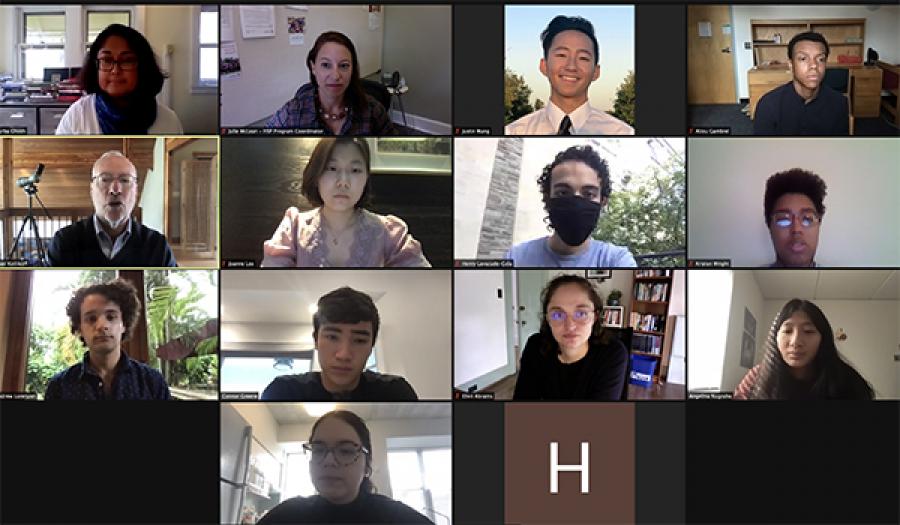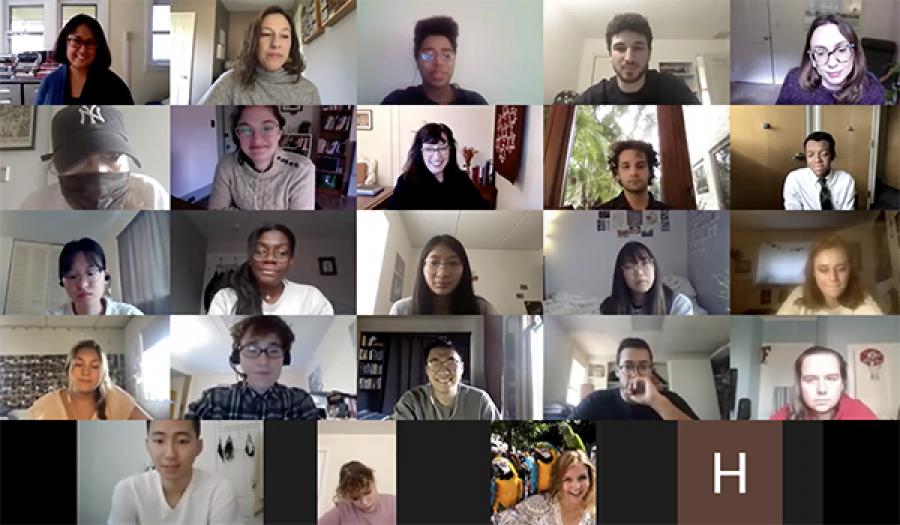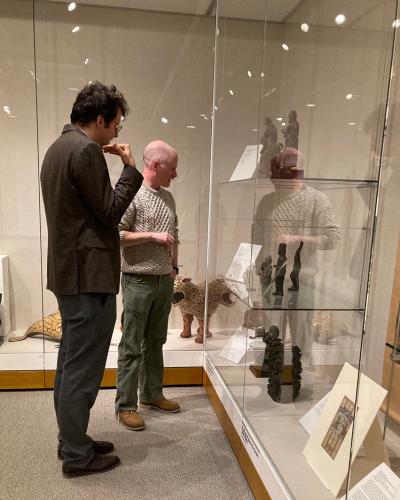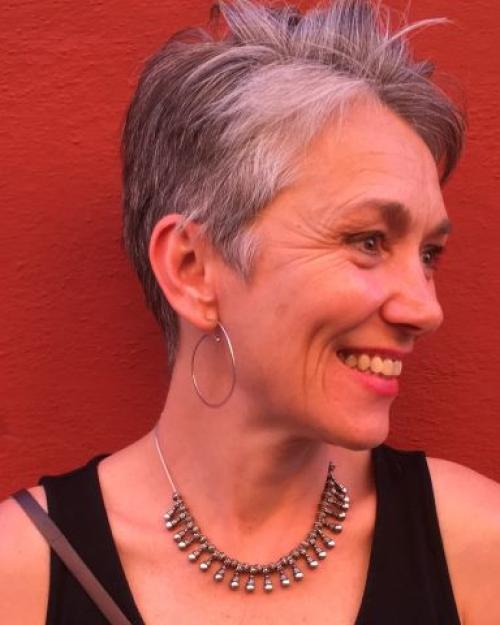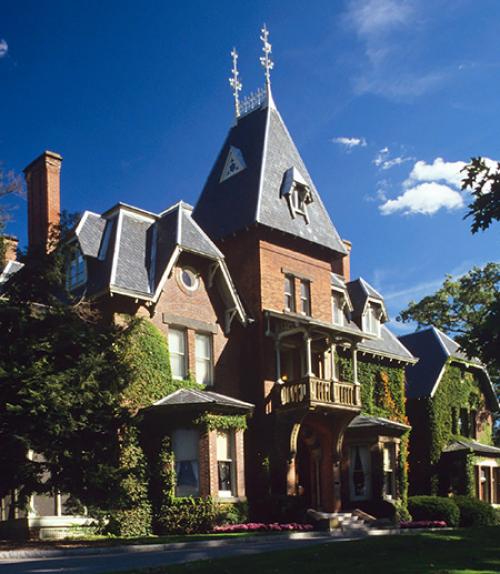Undergraduates in the new Humanities Scholars Program in the College of Arts & Sciences heard from top Cornell leaders this semester about their college experiences and the impact of humanities education on their career paths.
Provost Michael Kotlikoff and President Martha E. Pollack spoke by Zoom with the scholars, students from throughout the university who are interested in research in the humanities. The scholars take a series of curated courses and are offered structured mentorship and special programming and research opportunities, along with research funding. The program is housed at the Society for the Humanities in the historic Andrew Dickson White House on central campus.
“The biggest takeaway I had from the speakers was that the humanities are far more applicable than you’d imagine,” said Angel Nugroho ’22. “Someone’s skill in speaking or writing isn’t just inherent, but actually comes from experiences and education in the humanities that pushed them to grow.”
Scholars Joanne Lee ’22 and Aliou Gambrel ’22 noted that their discussions with Kotlikoff and Pollack allowed them to see these campus figures in a new light.
“Their appreciation for the humanities and its influence on their own scientific journeys demonstrated the truly interdisciplinary nature of Cornell's education for me,” Lee said.
“They both showed real ability to envision a direction for the university and its contribution to academia,” Gambrel said. “The two had an air about them that engaged with this broader spirit of human progress. It was rather inspiring.”
“I think the program is really meaningful for Cornell and for students outside of humanities fields,” Kotlikoff said. “I believe it’s our responsibility as educators to broaden people’s horizons in the most fundamental way. I hope we can promote the value of the humanities more broadly.”
Pollack also stressed the importance of such academic fields during her conversation with the group on Oct. 30.
“Now more than ever, we need work in the social sciences and the humanities,” Pollack said. “The real problems we face are almost never purely technical. They are rife with human factors, and if you try to solve problems that affect us as human beings without taking human factors into account, you’re going to fail.”
Throughout their discussions, both speakers offered words of encouragement to students.
“Do not underestimate your undergraduate degree. It will be relevant if you choose to transition to any field. It provides you with a leg up,” Kotlikoff said. “Don’t think to yourself that you won’t have lots of options.”
Students said they appreciate the new community created within the program.
“My favorite aspect of the program is the cohort itself. I remember meeting everybody and thinking – my goodness, there are others who are passionate about the same subjects as me,” Gambrel said. “The program only increasingly feels like a newfound scholarly family.”
“Everyone in the program is really passionate about what they’re learning, and I think it motivates me to pursue my own studies further,” Nugroho said.
Lee said her time as a scholar greatly informs her worldview.
“I’m taking SHUM 2750 Introduction to Humanities this semester, a program requirement. The course focuses on the materiality of life and continues to challenge my preconceptions about the world in the most profound, enjoyable way,” Lee said. “It’s changed how I interact with others and our discussions on Black and Indigenous feminist thought have cast necessary spotlights on historically marginalized, yet illuminating, perspectives.”
With the program only in its first year, Gambrel looks ahead.
“In many of the current cohort’s projects, I see ideas being made that are crucial to helping us, young or old, engage with the human condition,” Gambrel said. “I hope that the program can provide more students with the confidence to pursue studies in the humanities at a high and bold level.”
Amaris Janel Henderson is a communications assistant for the College of Arts and Sciences.

